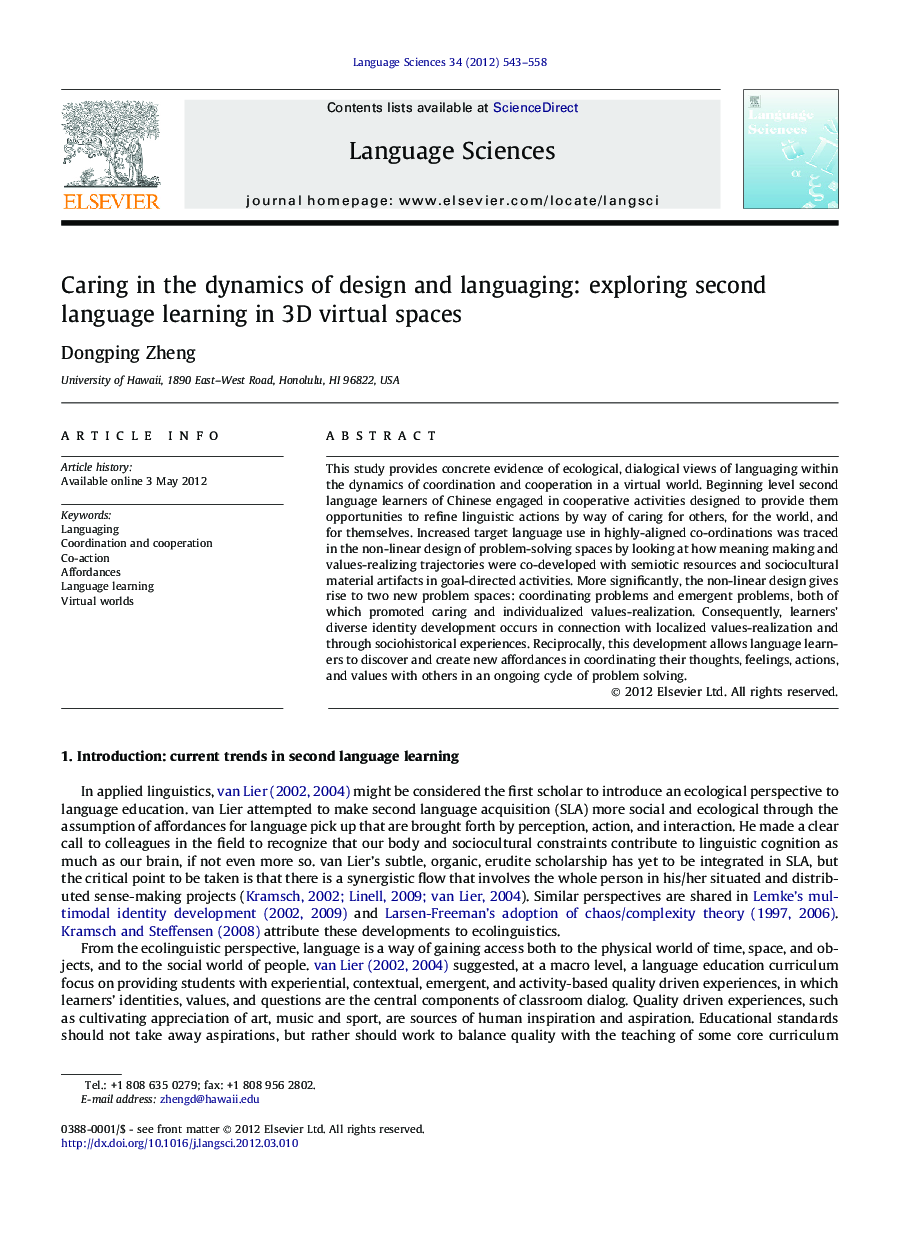| Article ID | Journal | Published Year | Pages | File Type |
|---|---|---|---|---|
| 1103196 | Language Sciences | 2012 | 16 Pages |
This study provides concrete evidence of ecological, dialogical views of languaging within the dynamics of coordination and cooperation in a virtual world. Beginning level second language learners of Chinese engaged in cooperative activities designed to provide them opportunities to refine linguistic actions by way of caring for others, for the world, and for themselves. Increased target language use in highly-aligned co-ordinations was traced in the non-linear design of problem-solving spaces by looking at how meaning making and values-realizing trajectories were co-developed with semiotic resources and sociocultural material artifacts in goal-directed activities. More significantly, the non-linear design gives rise to two new problem spaces: coordinating problems and emergent problems, both of which promoted caring and individualized values-realization. Consequently, learners’ diverse identity development occurs in connection with localized values-realization and through sociohistorical experiences. Reciprocally, this development allows language learners to discover and create new affordances in coordinating their thoughts, feelings, actions, and values with others in an ongoing cycle of problem solving.
